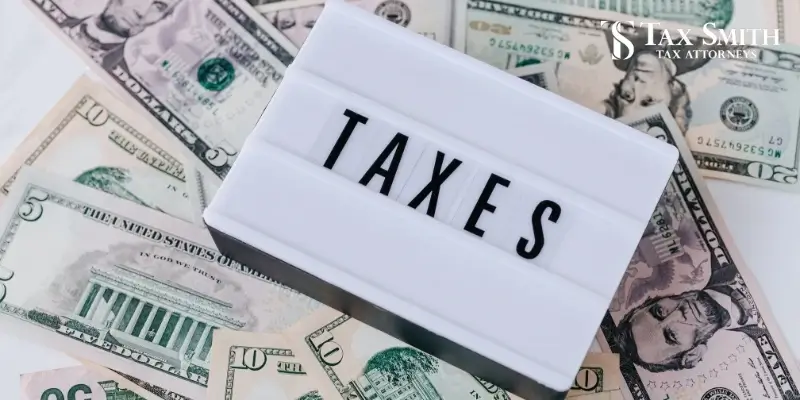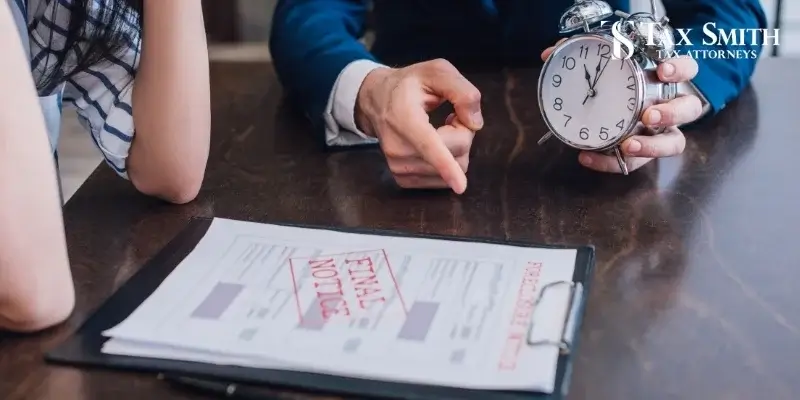1548 The Greens Way – Ste. 4 Jacksonville Beach FL 32250
What to Do If You Have Been Contacted by a Private Debt Collector About Your Taxes
In recent years, the IRS (Internal Revenue Service) has been required to work with private collection agencies to collect debts that are old and inactive, as the IRS’s collection actions have not succeeded. It is important to know what these agencies can and can’t do, how to verify them as legitimate, and what to do if you have been contacted by a private debt collector about your taxes. Consulting with an IRS tactics lawyer in Jacksonville, FL can help you navigate these interactions and protect your rights.

Why Would the IRS Assign My Debt to a Private Collection Agency?
The IRS is required to use private collection agencies to collect unpaid taxes from accounts that meet certain criteria. Your account may be assigned to a private agency if one or more of the following applies:
- The IRS couldn’t locate you or did not have the resources to do so.
- More than one year has passed, and there has been no interaction on your account by you or a representative.
- More than two years have passed since the tax was assessed, and your account was not given over for collection actions.
What Accounts Can’t Be Assigned to a Private Agency?
Some accounts cannot be turned over to a private collection agency. This includes the accounts of taxpayers who:
- Are under 18.
- Are deceased.
- Are victims of identity theft connected to taxes.
- Receive Supplemental Security Income or Social Security Disability Insurance benefits.
- Are in a combat zone.
- Have an adjusted gross income at or under 200% of the poverty level.
- Are considered an innocent spouse as a form of tax debt relief.
- Have an installment agreement.
- Have an in-progress or active offer in compromise.
- Are under a bank or other levy.
- Have the right to appeal.
- Are under investigation, examination, or litigation.
- Are requesting relief from a disaster declared by a president.
How Do I Know If the Agency Is Legitimate?
The IRS works with specific private collection agencies in Florida, so only notices from these agencies are legitimate. Additionally, prior to being contacted more directly, you will receive letters from both the IRS and the collections agency.
The IRS will send you a Notice CP40 as well as a Publication 4518. This informs you of the account’s transfer to a private agency, and it will also give you the name and information of the agency. The private agency will also send you a letter, including information to resolve the tax debt.
Each letter will list the taxpayer authentication number, which you can use to verify that the agency is legitimate. The number also verifies your identity. The agencies that work with the IRS as of late 2021 are CBE, Coast Professional, Inc., and ConServe.
What Can the Agency Do?
The private collection agency will send you an initial letter to contact you and identify itself as an IRS contractor. After you receive the letter, you will likely receive a call from the agency. The agency will work with you to determine a payment plan or other arrangement.
These agencies will not collect your financial information or take enforcement actions. They are also unable to accept or reject negotiations for other methods of relief, like an offer in compromise or marking the account as currently not collectible. These are actions the IRS can take. An agency will also not request payment or charge a fee for making a payment plan.
How Do I Handle a Notice From an Agency?
If you receive a notice from a private collection agency, it is important to verify the agency as legitimate. Once you have done so, you should work out a plan to resolve your unpaid tax debt. It can be helpful to work with a tax attorney during this process to better protect your interests and find the ideal method of resolving your tax debt.

FAQs About Private Debt & Tax Collector
Can Private Debt Collectors Take Your Tax Refund?
Private debt collectors are not typically able to take your tax refund, but your tax refund can be taken by the federal government to cover unpaid federal taxes or state income taxes. When the IRS collects taxes through private collection agencies, these agencies will monitor and manage payment arrangements, but they cannot take any enforcement action. If you owe back taxes to the IRS, you will likely never see a tax refund, as it will be applied to your tax debt immediately.
Does the IRS Work With Private Collection Agencies?
Yes, the IRS works with private collection agencies, but only specific ones. The IRS will have these companies work on certain inactive and outstanding tax debts that the IRS does not have the resources to address or has already spent time working on. Some accounts cannot be transferred to private collection agencies, including those for taxpayers who are:
- Deceased.
- Under 18 years old.
- Victims of identity theft related to their taxes.
- Determined to have an adjusted gross income that is only 200% or less than the poverty level relevant to them.
What Happens If Your Taxes Get Sent to Collections?
If your taxes get sent to collections, you have received several notices of nonpayment and requests for payment, but you have failed to pay the debt, contact the IRS, or take other action. The IRS will begin to take collection actions, which could include wage garnishment, property liens, bank levies, and other actions. If these actions fail and the tax debt remains unpaid, it may be sent to a private collection agency. It is important to not ignore notices from the IRS and address potential tax issues and debts quickly.
How Do I Verify Whether a Debt Collector Is Legit?
You can verify whether an IRS debt collector is legitimate by checking that you have received a letter from both the IRS and the private collection agency prior to getting a phone call, which is called a Notice CP40. These letters will both include a taxpayer identification number. You can verify the company’s legitimacy using this number. The IRS also only uses specific private collection agencies; since 2021, it has worked with the following companies:
- CBE; Waterloo, IA
- Coast Professional, Inc.; Geneseo, NY
- ConServe; Fairport, NY
Prior to late 2021, the IRS worked with CBE, ConServe, Performant, and Pioneer.
Contact Tax Smith Tax Attorneys
At Tax Smith Tax Attorneys, we want to help you negotiate your tax debt. Contact our firm today.
Locations We Serve
- Alabama
- Arizona
- California
- Colorado
- Connecticut
- Delaware
- District of Columbia
- Florida – HQ
- Georgia
- Idaho
- Illinois
- Indiana
REQUEST A CONSULTATION
Please fill out the Contact Request Form and a Tax Attorney/Paralegal will call you
to discuss legal representation or to schedule your free initial consultation




